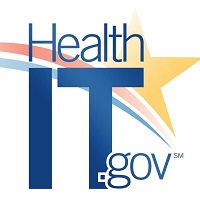 By Jawanna Henry, Brett Andriesen, Kevin Chaney, MGS, Tracy Okubo and Allison Dennis, ONC
By Jawanna Henry, Brett Andriesen, Kevin Chaney, MGS, Tracy Okubo and Allison Dennis, ONC
Twitter: @ONC_HealthIT
Each year since 2018, new Leading Edge Acceleration Projects (LEAP) in Health IT awardees join an entrepreneurial group dedicated to developing and scaling technological breakthroughs. Together, these awardees bring forth solutions to advance research capabilities and improve care delivery. This year is no exception. The University of Texas at Austin (UT Austin) and DARTNet Institute are the newest awardees under ONC’s LEAP in Health IT funding opportunity.
For 2021, LEAP in Health IT focused on two areas of interest:
- Area 1: Referral Management to Address Social Determinants of Health (SDOH) Aligned with Clinical Care
- Area 2: Health IT Tools to Make Electronic Health Record (EHR) Data Research- and Artificial Intelligence (AI)-Ready
Referral Management to Address SDOH Aligned with Clinical Care
ONC recently announced the release of United States Core Data for Interoperability Version 2 (USCDI v2), which included specific data elements that could help advance the use of health information technology to support health equity, including the collection, access, use and reporting of standardized social determinants of health (SDOH) data.
Integrating SDOH data into EHRs provides valuable context around how a person’s living conditions can impact their health. However, merging SDOH data with data in EHRs is only the starting point. To maximize the use of SDOH data, it also needs to be integrated into a closed loop system to ensure that patient hand-offs are completed seamlessly, to prevent gaps in care from happening when patients are referred or transferred to other care providers.
The University of Texas at Austin will be working to do just that. UT Austin will create an Application Programming Interface (API) enabled Social and Health Information Platform using the Health Level 7 International (HL7®) Fast Healthcare Interoperability Resources (FHIR®) standard to integrate a closed loop social services referral system. The system will be accessible to the EHRs used by Federally Qualified Health Centers (FQHCs) to leverage SDOH data.
The system will be used to:
- Manage social needs identified in clinical settings;
- Exchange information between clinical providers and community-based organizations;
- Integrate clinical workflows in EHRs; and
- Provide patient access, consent, and navigation via a mobile platform
The system will leverage the use cases developed by Gravity Project for the collection of SDOH data related to food security, housing stability, and transportation access.
Health IT Tools to Make EHR Data Research- and AI-Ready
Health data comes from a wide variety of sources, and that means more often than not that the data is far from consistently standardized. Currently, EHR data is primarily collected for administrative and clinical use. However, this data would be immensely valuable to medical and public health researchers – if it was readily usable by them.
DARTNet Institute will be working to make clinical data usable for research and by AI-enabled machine learning models. DARTNet will be partnering with Cloud Privacy Labs, a privacy technology company to build and evaluate a data processing framework. The framework will use innovative technologies to enable semantic harmonization of health data collected from multiple small and large sized healthcare provider EHR systems.
The collection of this data will provide the type of high-quality health data sets needed for training AI based models and research needs. This will ultimately help advance the national health IT infrastructure to support research.
Read the press release about the LEAP in Health IT project and the LEAP in Health IT program page for more detailed information.
This article was originally published on the Health IT Buzz and is syndicated here with permission.
